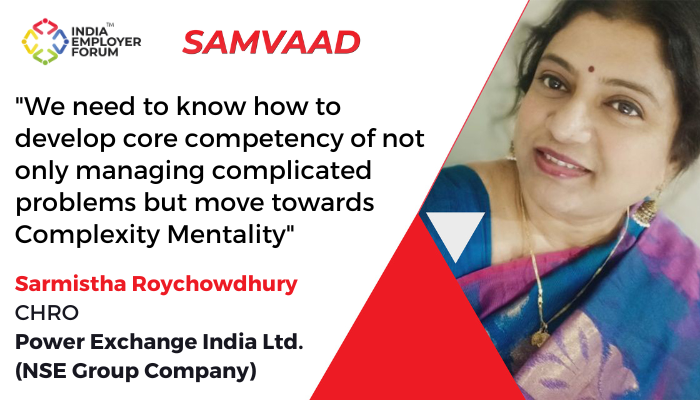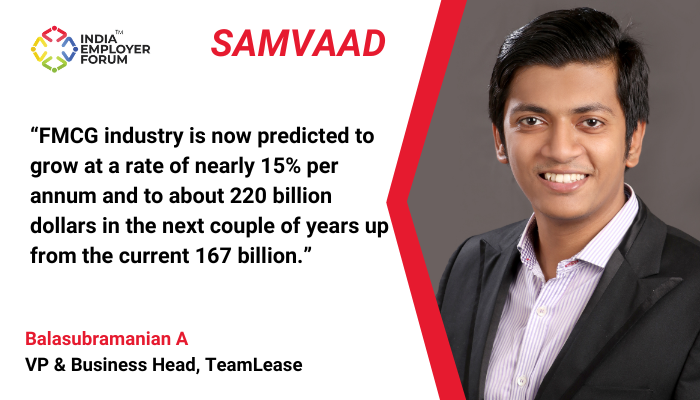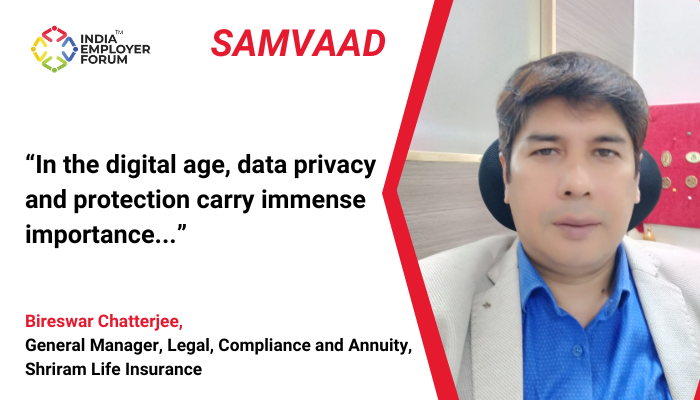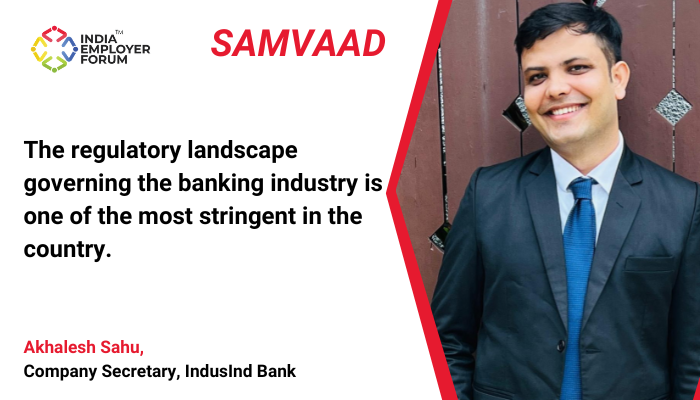Sarmistha Roychowdhury, CHRO, Power Exchange India Ltd. (A NSE Group Company), speaks to India Employer Forum about recession fears, strengthening employee connect, employability problem in India, budget expectations and many more.
Q. With the uncertainty in the global economy and recession fears looming, as a CHRO, what do you think are the most critical aspects in preparing for such an event if it occurs?
I think the inflation, the food and energy prices have caused the highest inflation since the 1980s and with the rising government rates have created anxiety in the market. We are also aware of what’s happening around us, the global unrest across Ukraine and several parts of the world. I read an article recently which said that the IMF has cut its Global growth forecast, and so, there are a lot of reasons to worry and be anxious. I think we, as HR leaders across, are facing the same problem everywhere. We need to know how to develop the core competency of not only managing the complicated problems, but we need to go towards solving complexity mentality.
When I talk about complexity mentality, it’s just that most of the HR leaders would have addressed the difficulties described as a problem by resolving the variables and agreeing on the best way ahead. This has been our standpoint yesterday, but the adversity covid got along, we didn’t even know. We were made to sit in our homes. I think it was by 2020, 23rd March, that we decided to close offices. When we realised that leaders never confronted the pandemic problem, it was evident that they were solving the complex mentality.
Q. What are the top approaches you take to strengthen employee connect? Any particular experiments which have yielded great results?
In the current scenario, we cannot undermine that if people are working from home they might use their official hours, but post that what they do is not in the control of any organisation. They might have their own independent time and they might want to use it accordingly, however, during working hours, they need to follow company policy. That’s the top challenge on how the HR or the organisation need to help the workforce to keep them engaged. What we have done during the pandemic is we have created some cross-functional teams. We tried to understand and recognise the champions by their line managers and created cross-functional teams, where every alternate day in a week they would connect and understand their problems.
So, unless there is inter-functional communication and inter-functional resolutions, not only the leaders but also the line below will be helping the leaders to go to the target. The problem, whether working from the office or working from home, will keep getting resolved. To have crisp communication for an interconnected, inter-departmental clear connection, we created cross-functional tasks, we always preferred a human-centric approach and the human-centric experience design. So, my job was to find out whether the employees in the organisation liked their jobs or not? What we did was, I connected randomly with different departments through the pandemic and tried to understand what their strengths, opportunities and desires were, and what were their expectations from the job.
Q. Talking about the employability of fresh graduates, it is widely stated that most of our graduates are not employable. How can the industry help plug this gap and make our graduates employable right out of college?
My daughter is studying in one of the top premier Institutes of India and she is into digital transformation. She has done her Masters and I understand why and how fresh graduates from top institutions like engineering or MBA colleges can improve their employability. They can intern or pick up part-time jobs while studying. This will help them build on their transferable skills and that will be useful in the future. I’m seeing that happening in my personal life and in my daughter’s career also. So, what I would like to say is in the form of internships, the students could pick up part-time jobs and that’s how they can build their skills, and these skills would be transferable, and they may be useful in the future because what they read is more about the theory and what the organisations want is hands-on experience. So, there is definitely a gap and this gap can definitely be transferred by picking up this kind of engagement in terms of internships or part-time jobs.
Q. What are your 5 biggest expectations from the budget this year?
As a salaried person, I would want for me and the entire salaried crew to have modifications in 80C which allows about 1.5 lakhs every year as tax saving income and NPS in addition to 80C. Deduction limit for a home loan interest would also be wonderful and that would promote the economic sentiment of employees. So, the union budget can expand 80D and provide deduction in pandemic-related treatments for all ages and investments through NPS would allow more people to access. During the pandemic, we had relatives facing problems and I have seen some of my relatives struggling. They lost their lives struggling for beds, etc. So, the absence of infrastructure in tier 2 and tier 3 cities that have become painfully obvious for all of us, needs to be resolved.
The people of the country will be in a better position if the hospitals are improved through public-private partnerships by provisions of alluding inducements such as the investigation of the possibility of tax evasion that would definitely help and also widening the PLI program for the potential to bring total exports to an all-time high. The government can think about expanding the exposure provided by PLI and identify additional emerging businesses, so that the MRO aerospace Warehouse robots, Waste Management, etc could be purchased by PLI.
Watch the complete interview: In conversation with Sarmistha Roychowdhury | CHRO | Power Exchange India Ltd. (A NSE Group Company)
About Sarmistha Roychowdhury
Sarmistha is a 22-year Strategic HRM expert. She’s led high-performing teams in diverse sectors which include Manufacturing, Telecom, Automobile, Consulting, Chemical, and Power & Energy. She is an MBA in Human Resources and double bachelor’s degrees holder in Science -Honours in Chemistry and bachelor’s in education. She has an Advanced HRM qualification from IIM Ahmedabad and is certified as trainer & facilitator, total rewards compensation and benefits analyst, leadership, and change management. She’s won Super women achievers Award in World HRD Congress, and Women Leadership and HR innovation awards. Sarmistha is PXIL’s CHR, Head HR (promoted by NSE & NCDEX).




